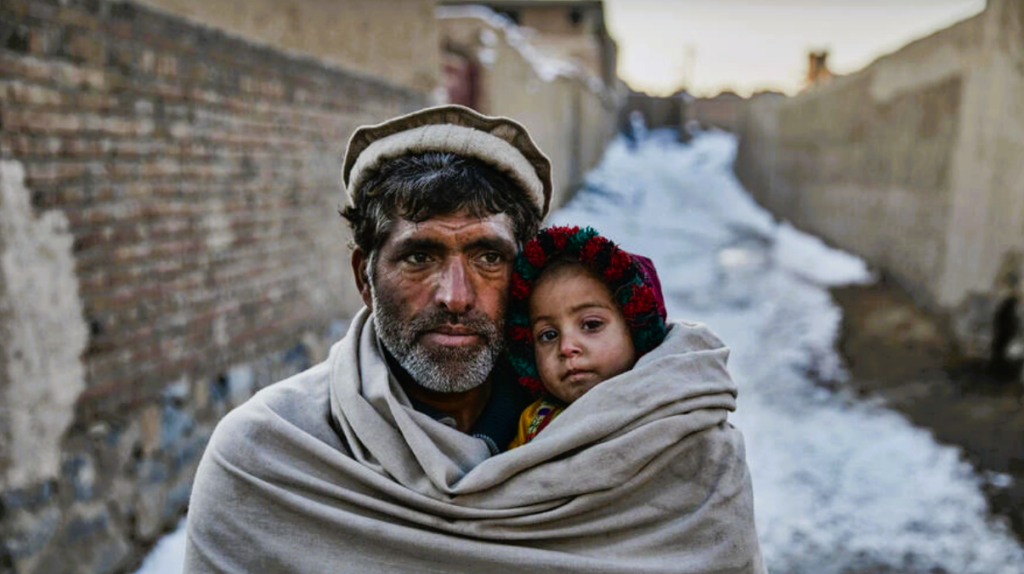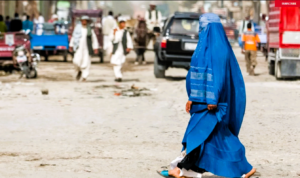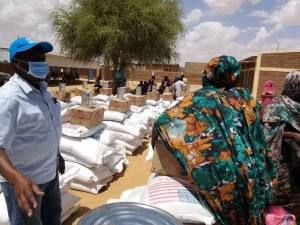Efforts to unfreeze Afghan sovereign reserves, to allow the economy and banking system to function and enable economic stability, are essential steps to reduce poverty, promote human rights, and address humanitarian needs under Taliban governance.

Afghanistan is no longer a major focus of international media attention, but on-the-ground perspectives present a mixed and nuanced picture of everyday life under Taliban rule. Releasing Afghanistan’s seized external reserves – US$9.2 billion – remains as critical as ever to secure a functioning economy and banking system, which is key to reducing poverty and deprivation and enabling economic stability.
The situation in Afghanistan remains of grave concern. Economic warfare translates into the deepening pauperization of millions of Afghans. Vulnerable Afghans were already struggling to survive a hand-to-mouth existence after decades of warfare and dysfunctional governance when the Taliban returned to Kabul in August 2021. Three years later, heavily dependent on diminishing humanitarian support, 23.7 million Afghans – 52 percent of whom are children and 25 percent are women – are trapped in a debilitating cycle of poverty, increasing indebtedness, displacement, and disasters associated with natural hazards, including the effects of the climate crisis. The bulk of the population is routinely hungry; this is particularly threatening for a significant proportion of Afghans experiencing high levels of acute food insecurity.
A key factor in the deprivation that Afghans suffer is the policy of the US and some European allies to seize and block access to the country’s sovereign reserves – the assets of the Afghan people – upon the withdrawal of US and allied troops from the country and the emergence of the Islamic Emirate (IEA) three years ago. Efforts to dismantle or sideline Da Afghanistan Bank (DAB), the country’s central bank, persist, as do restrictions that prevent arrangements with correspondent banks, which are essential for international transactions and access to the global financial system. Afghanistan has many unique features, but as in any setting, a functioning economy is fundamental to everyday survival, including livelihoods, at the local and national levels.
The human rights situation in Afghanistan is also of great concern. The multiethnic nature of Afghan society is often ignored in governance structures, to the detriment of minorities and prospects for an inclusive and equitable future. Measures that entrench deep-rooted discriminatory norms against females are widely condemned but to little apparent effect. The latest round of Vice and Virtue regulations further restricts the freedom of women and girls outside the home, including in relation to education, employment, freedom of movement, and expression. This will exacerbate the marginalization of females and diminish their life options.
Such discrimination undermines effective humanitarian action and other assistance programs, which, in turn, risks additional reductions in donor funding. It also complicates initiatives to promote constructive engagement with the de facto authorities, the Islamic Emirate of Afghanistan (IEA). Such an approach is needed to avoid making Afghanistan a pariah state and further isolating Afghans. It is also incumbent on human rights actors to acknowledge that the policy of disabling the DAB has harmful consequences for Afghans. This is particularly the case for destitute families who sometimes resort to adverse coping mechanisms such as the exchange of young girls in marriage.
There is broad consensus, inside and outside Afghanistan, that the IEA will remain in place for the foreseeable future as will its unique interpretation of Sharia law. This does not mean that changes will not occur. Afghanistan, and the wider region, is not immune to changing geopolitical dynamics. This includes, for example, the fallout of the Israeli-Palestinian conflict that brings to the fore the perceived double standards of Western bloc countries, including their rhetoric on human rights and the relevance of the rule of law.
The IEA has made reference to this when claiming that human rights issues are a domestic concern. Thus, while different Western countries debate the extent to which they should engage but not recognize the IEA, various regional neighbors and others are keen to strengthen trade and other relations. Recent times have seen a surge in diplomatic activity involving high-level officials. China, for example, welcomed an IEA Ambassador to Beijing in January. The United Arab Emirates did so in Abu Dhabi in August. Uzbekistan’s Prime Minister visited Kabul in August.
Kabul announced in September that some 40 Afghan embassies and consulates now report to the IEA. Such diplomatic breakthroughs will, in principle, facilitate trade and investment in Afghanistan, a country that is one of the poorest and least developed in the world.
Conscious of the debilitating level of poverty in Afghanistan as well as reduced support for humanitarian action and access to public services, including health care, UAI remains focused on securing the release of the seized external reserves. These assets are vital for the work of the DAB, economic growth, and stability. It has been clear for some time that humanitarian action is not a substitute for a functioning economy and banking sector. It is also apparent that social change and reduction of inequalities are unlikely in a context of grinding poverty. Afghans need an end to the collective punishment inherent in the “frozen funds” policy. Afghans need, and have a right to, socio-economic development that is sustainable while addressing structural inequalities.
The Afghanistan Task Team relies on an array of contacts and networks to maintain a nuanced understanding of evolving events, including the impact of different fatwas around the country, taking into account local ethnic and other realities.
The “Release Afghanistan’s Frozen Funds” Campaign remains actively engaged on various fronts. Since mid-2023, UAI has issued various statements, blogs by a broad cross-section of authors, and periodic updates. All of these, together with articles posted on the Media Watch section, are readily available to the public on the Campaign’s dedicated website: https://www.against-inhumanity.org/campaigns/afghanistan-campaign/
UAI has engaged in different forums and panel events to discuss the “Frozen Funds” problem and the evolving situation in Afghanistan. UAI interacts on a routine basis with media personnel, NGO colleagues, and academics interested in Afghanistan. The Task Team keeps track of the activities and statements of the Fund for the Afghan People in Switzerland; it was established in 2022 when the Biden Administration transferred US$3.5 billion – half the amount of the seized Afghan sovereign reserves in the US – to this dedicated Fund that is mandated to protect and preserve these assets for the benefit of Afghans.
UAI continues to advocate that these resources are used to recapitalize the DAB. In common with other stakeholders, UAI, since the beginning of the campaign, has indicated that the DAB should have limited, conditional, and internationally monitored access to a minimum of US$150 million monthly. This would help the DAB, for example, hold regular currency auctions to help stabilize the value of the local currency, the afghani. UAI also concurs with the need to strengthen the DAB’s AML/CFT (anti-money laundering/counter-financing of terror) capabilities, a step that should be pursued quickly to avoid further delays that continue to harm Afghans in innumerable ways.
UAI’s Afghan Task Team meets periodically to review and take decisions geared to advancing the release of the “Frozen Funds.”











